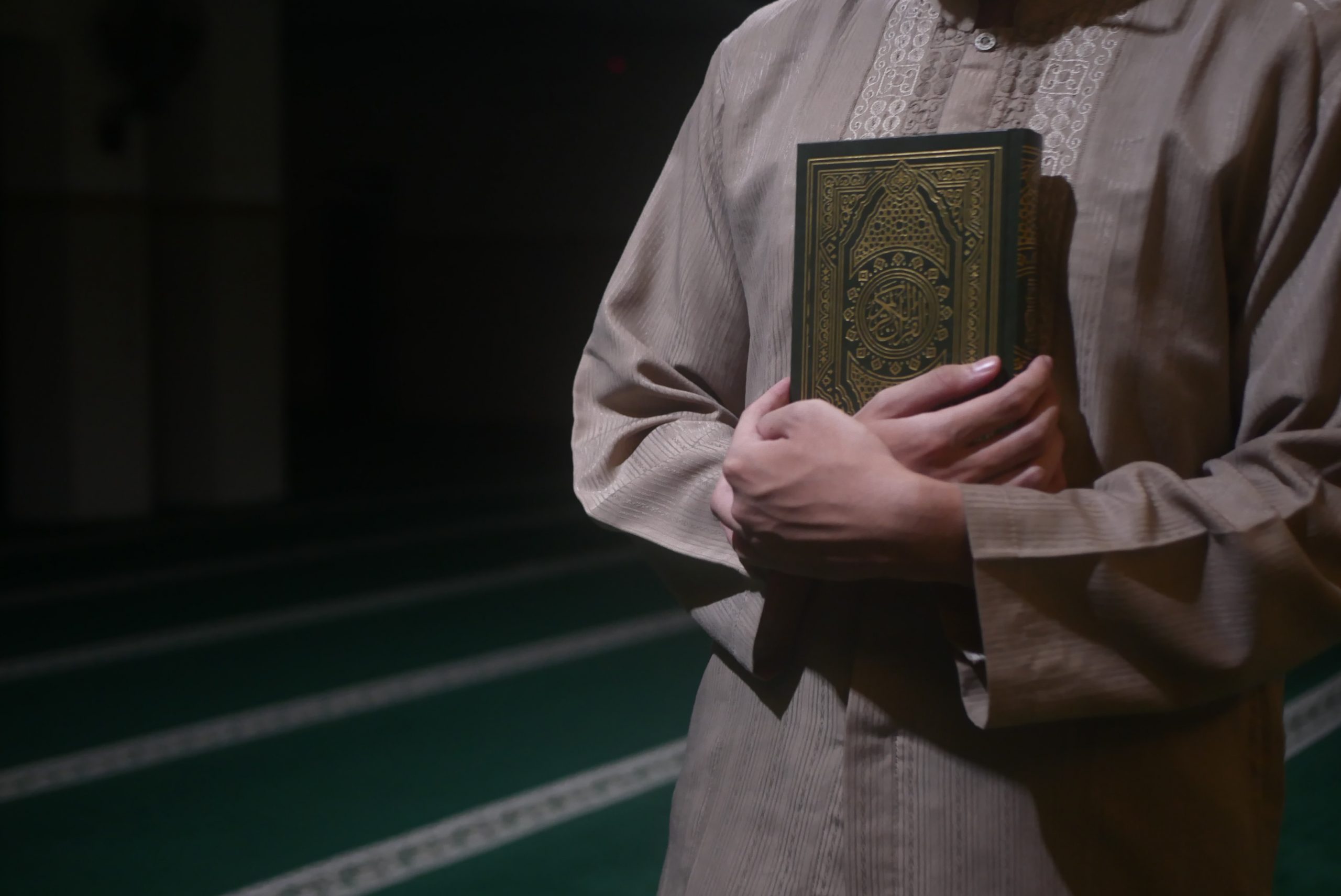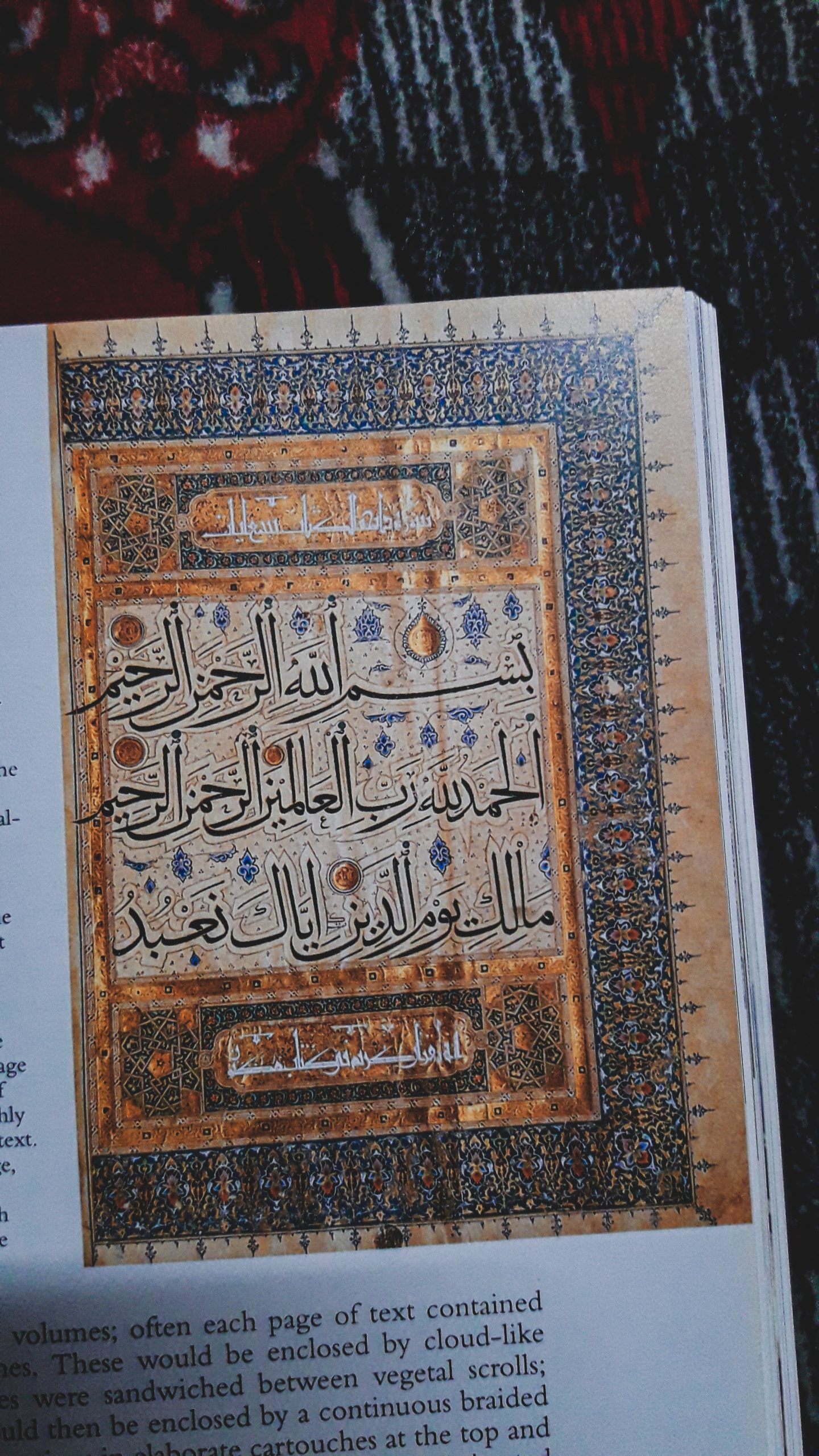#Islam
Conversing with Allah: Reflecting On Surah al-Fatihah For Khushoo In Salah
Published
By
Asim Khan
This Surah of the Qur’an has special importance in our Salah. No matter what other Surahs or passages you happen to recite in your prayer, none of them could take the place of the Fatihah. The Prophet ﷺ said, “There is no Salah for the one who does not recite al-Fatiha.”1Sahih Muslim, Hadith no. 394
Surah al-Fatihah should be looked at as a conversation between the Believer and the Creator. Adopting this new perspective is a powerful way to uplift your Salah and gain humility and focus (khusū’). In an authentic narration, the Prophet ﷺ informed us that:
Allah, the Almighty, tells us, ‘I have divided prayer (i.e. Surah al-Fatihah) equally between Myself and My servant. Half of it is for Me and half of it is for My servant. And My servant will receive whatever they ask.
When the servant says, “All praise is due to God alone, Lord of all the worlds” (al-hamdu lillahi rabbi al-alamin), I will say, “My servant has praised Me.”
When My servant says, “the Extremely Merciful, Forever Merciful” (al-Rahman al-Rahim), I will say, “My servant has extolled Me.”
When My servant describes Me as “Master of the Day of Judgment” (Maliki yawmi al-din), I will say, “My servant has glorified Me.”
When My servant says, “You alone do we worship, and unto You alone do we turn for aid” (iyyaka na’budu wa iyyaka nasta’in), I will say, “This is divided between Me and My servant.” And My servant shall receive whatever they ask.
When My servant says, “Guide us the Straight Path” (ihdina al-sirata al-mustaqim), “the way of those upon whom You have bestowed Your blessings, not of those who have been condemned, nor of those that go astray” (sirata al-ladhina an[amta alayhim ghayri al-maghdubi alayhim wa la al-dallin), I will say, “This is for My servant, and My servant will receive whatever they asked for”.
Surah al-Fatihah comprehensively summarizes the key beliefs and concepts of Islam. It outlines the fundamental relationship every person is meant to have with their Maker and Creator. It can be broken down into two parts:
Keep supporting MuslimMatters for the sake of Allah
Alhamdulillah, we're at over 850 supporters. Help us get to 900 supporters this month. All it takes is a small gift from a reader like you to keep us going, for just $2 / month.
The Prophet (SAW) has taught us the best of deeds are those that done consistently, even if they are small. Click here to support MuslimMatters with a monthly donation of $2 per month. Set it and collect blessings from Allah (swt) for the khayr you're supporting without thinking about it.
Part 1: Who is Allah 
Part 2: Who am I?
Part 1: Who is Allah  ?
?
The first three verses of Surah al-Fatihah introduce us to who Allah 


All praise is for Allah—Lord of all worlds
the Extremely & Eternally Merciful
the Master of the Day of Judgement.
When you recite “All praise is for Allah”, think about how much He has blessed you with: your health, your wealth, and the opportunities you have been given in life. Feel blessed and privileged. Then realize that being able to thank Him is in and of itself another blessing to thank Him for— even if we tried, we cannot enumerate the blessings of Allah 
Part of the meaning of alhamdulillah is to declare that all forms of praise are due to Allah 

Khusū’ Tip!
When reciting ٱلْحَمْدُ لِلَّهِ رَبِّ ٱلْعَـٰلَمِينَ think about one blessing you are currently experiencing and enjoying. Ask yourself: what would life be like if it was taken away?
Allah 


It is because of His rahma that a mother is able to endure pregnancy and exhaust her efforts in raising a child, despite its burdensome nature.
These two Names of Allah should evoke a sense of hope and optimism in our hearts that Allah 
Allah 
It is the day on which true justice will be served, the victims of oppression will have their cases heard in the Supreme Court of Allah and the tyrants will have no escape.
Khusū’ Tip!
If you are the victim of abuse or oppression, and the perpetrator seems to have gotten away with it, find solace in the fact that Allah 
When hearing this verse we should be struck by the greatness of Allah 

Part 2: Who am I?
Surah al-Fatihah now transitions from speaking about Allah 

You alone do we worship, and from You alone do we seek help.
Guide us along the Straight Path,
the path of those on whom You have bestowed Your Grace, not of those who have incurred Your wrath, nor of those who have gone astray.
It should be as though the previous verses have brought you into a state of awe and reverence towards Allah 





PC: Visual Karsa (unsplash)
Khusū’ Tip!
As you recite: إِيَّاكَ نَعْبُدُ, remind yourself that just like you are the slave of Allah 


You then make a plea to Allah 
The need for Divine guidance outstrips our need for anything else. The Pharaoh was the most powerful man of his era and yet it did not help him find salvation. Qarun had all the riches of the world but in the end, the earth swallowed him up upon the command of Allah 
Did you know?
Imam Ibn al-Qayyim said that the various meanings of Guide us along the Straight Path include
- Acknowledging the truth & seeking it out
- Acting upon it
- Remaining steadfast upon it
- Calling others to it3Asrar as-Salah by Ibn al-Qayyim, p. 51
- Resisting those who will oppose you for it
Khusū’ Tip!
When reciting ٱهْدِنَا ٱلصِّرَٰطَ ٱلْمُسْتَقِيمَ remember that faith fluctuates. It may be great one day but plummets the next. Have the intention of seeking consistency and steadfastness in faith.
Surah al-Fatihah then explains what this Straight Path looks like: the path of those on whom You have bestowed Your Grace. This is referring to real-life examples from the past of the Prophets, martyrs, and the righteous. Their stories, sacrifices, and life choices help inform our understanding of what the Straight Path looks like.
Finally, the Surah makes clear what the Straight Path does not look like: not of those who have incurred Your wrath, nor of those who have gone astray. This is referring to the losers. The examples of such people, both individuals and nations, are given throughout the Qur’an, leaving little doubt as to what ideas, behaviors, and attitudes Allah 

Now say Ameen, O Allah 
[Want to learn more about how to focus in Salah & develop Khusū’? Pre-order this new book by Ustadh Asim Khan here.]
Related:
– Structural Cohesion In The Quran [A Series]: Surah Al Fatihah – MuslimMatters.org
– The Theme of Surah al-Fatihah – MuslimMatters.org
Keep supporting MuslimMatters for the sake of Allah
Alhamdulillah, we're at over 850 supporters. Help us get to 900 supporters this month. All it takes is a small gift from a reader like you to keep us going, for just $2 / month.
The Prophet (SAW) has taught us the best of deeds are those that done consistently, even if they are small. Click here to support MuslimMatters with a monthly donation of $2 per month. Set it and collect blessings from Allah (swt) for the khayr you're supporting without thinking about it.
Ustadh Asim Khan is a published author of 3 books, including the Simple Seerah & the best-selling “The Heart of the Qur’an”, a commentary on Surah Yasin. He is a Hafiz of Qur’an, has gained a Masters in Pharmacy from the University College London UK, and studied Arabic and Quranic Sciences in Cairo, Egypt. His true passion lies in Tafsir studies where you can find numerous online lectures of his on Qur'ān related topics.


Faith, Identity, And Resistance Among Black Muslim Students

Moonshot [Part 12] – November Evans

From The Prophets To Karbala: The Timeless Lessons Of Ashura For Muslims Today

Moonshot [Part 11] – The Fig Factory

Nationalism And Its Kurdish Discontents [Part II of II]: Kurds And Turkiye After Ottoman Rule

Moonshot [Part 11] – The Fig Factory

Moonshot [Part 12] – November Evans

Moonshot [Part 10] – The Marco Polo

Moonshot [Part 9] – A Religion For Real Life

Moonshot [Part 8] – The Namer’s House

[Dhul Hijjah Series] Calling Upon the Divine: The Art of Du’a (Part 1)

IOK Ramadan 2025: Four Steps | Sh Zaid Khan

IOK Ramadan 2025: Do Your Best | Sh Zaid Khan

IOK Ramadan 2025: Giving Preference to Others | Sh Zaid Khan

IOK Ramadan 2025: Which Group Are We In? | Sh Zaid Khan
MuslimMatters NewsLetter in Your Inbox
Sign up below to get started








